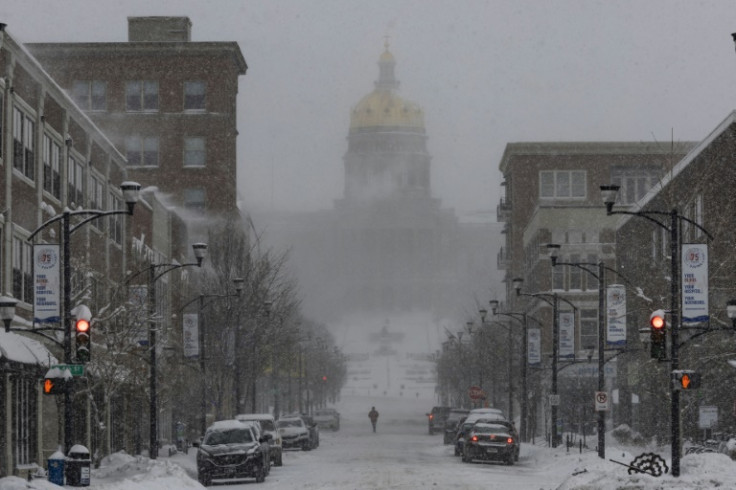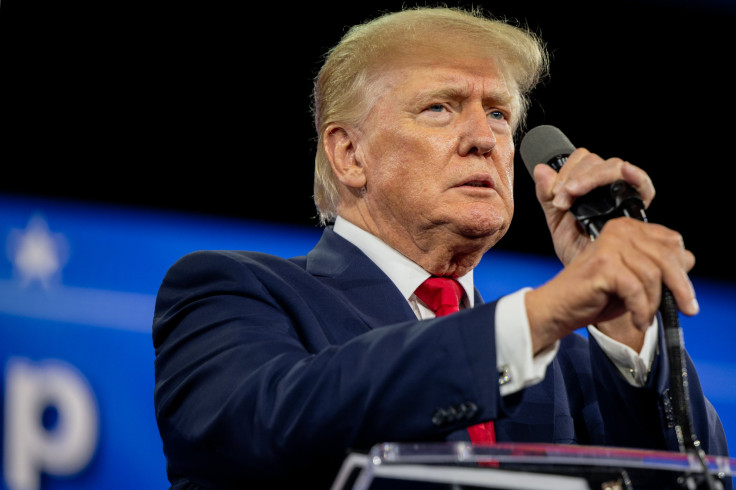
The Iowa caucuses could be influenced by a non-political unexpected factor on Monday: historically low temperatures that are gripping the state and a large portion of the United States in general, potentially impacting the overall turnout.
Temperatures are unlikely to break 0 degrees Fahrenheit throughout the day and wind chills could bring figures to as low as -45 degrees F during the night, according to the National Weather Service.
"Outdoor exposure without proper winter clothing will be dangerous," said Matt Sitkowski, science editor-in-chief at The Weather Channel. Frostbite can occur within 10 minutes of outdoor exposure, officials added.
Such temperatures began on Friday with a blizzard that covered the entire state, leading candidates to cancel most of the events they had scheduled. The likely winner of the caucuses, Donald Trump, said in a recent event that a lower turnout could benefit his performance.
"And they said, 'That's good.' Why is it good? Because the other side will never vote, because they don't have any enthusiasm," Trump said. "We won't lose one vote, because our people, they use the term, "walk on glass." They're not going to stay away. They're going to, 'walk on glass,'" said Trump.

All odds point in Trump's favor. According to the latest average by FiveThirtyEight, the former president has a 52.7% of the support in Iowa, almost 35 percentage points more than runner-up Nikki Haley.
The most contested fight will be over the second place, as the former ambassador to the UN has recently overtaken Florida Governor Ron DeSantis in the second place both in Iowa and New Hampshire.
DeSantis also argued that his base is committed to turning out despite the freezing temperatures, citing grassroots organization efforts whereby precinct captains will ensure supporters make it to their caucus.
"There's a machinery that goes with a caucus, no matter what, but especially now with what the weather is going to be like, we have that infrastructure there," DeSantis told reporters Friday.
The Iowa Caucus was first held in the 60s. Since then, it has become a staple of American politics, giving increased media attention and a boost in polls to the candidate that leads the event.
This year, Democrats have changed the process by delaying the caucus and voting by mail, with the winners announced at a later date.
Despite being known as one of the "whitest states" in the country, Latino population in Iowa has grown nearly 162 percent between 2000 and 2020. Today, they are the largest minority group in the state, making up roughly 7 percent of its population.
© 2023 Latin Times. All rights reserved. Do not reproduce without permission.







